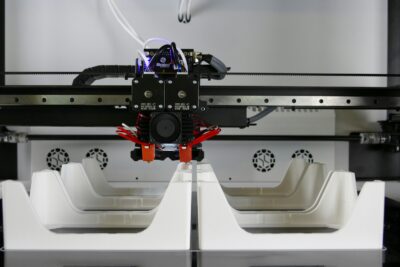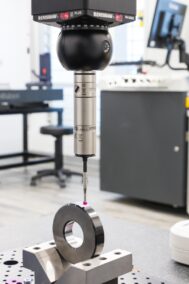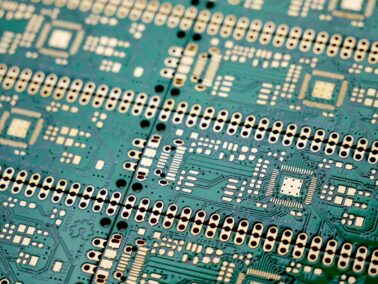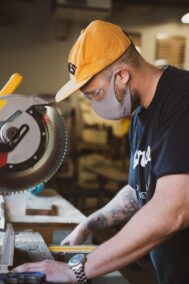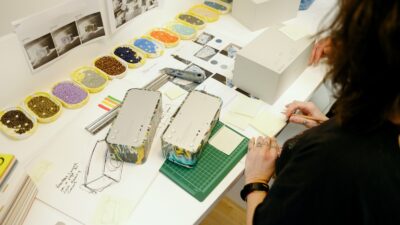How Additive Manufacturing is Transforming the Consumer Products Industry
Revolutionizing Production with Additive Manufacturing
The versatility of additive manufacturing has ushered in a new era for the creation of unique consumer products. As an innovative process, additive manufacturing, often known as 3D printing, builds products layer by layer, allowing for intricate designs and bespoke customization that traditional manufacturing methods struggle to achieve. In regions like Saudi Arabia and the UAE, this technology is being harnessed to propel their economies towards a future dominated by advanced manufacturing and cutting-edge innovation.
In Riyadh and Dubai, the implementation of additive manufacturing is not only a technological leap but also a strategic move to diversify economies heavily reliant on oil. The ability to produce customized goods on demand without the need for extensive inventories is transforming industries ranging from healthcare to automotive and beyond. For business executives and entrepreneurs in these regions, understanding the potential of additive manufacturing can open up new avenues for business success and competitive advantage.
Moreover, the flexibility offered by additive manufacturing allows for the rapid prototyping and testing of new products, reducing the time from concept to market. This agility is crucial in today’s fast-paced market environment, where consumer preferences are constantly evolving. Businesses can quickly adapt to changes, introducing innovative products that meet specific customer needs. This adaptability not only boosts customer satisfaction but also enhances brand loyalty and market share.
Customization and Personalization: The New Frontier
One of the most compelling advantages of additive manufacturing is its ability to create highly customized and personalized products. This capability is particularly valuable in markets like Riyadh and Dubai, where there is a growing demand for luxury and bespoke items. From personalized medical implants to custom-designed fashion accessories, the applications are vast and varied. This trend towards personalization is driven by consumers’ increasing desire for products that reflect their individual preferences and lifestyles.
In the healthcare sector, for example, additive manufacturing enables the production of patient-specific implants and prosthetics, significantly improving patient outcomes. This technology allows for the creation of complex geometries that perfectly match the patient’s anatomy, something that is difficult to achieve with traditional manufacturing techniques. In the automotive industry, custom parts and accessories can be produced to enhance vehicle performance and aesthetics, catering to niche markets and high-end consumers.
For business leaders and mid-level managers, integrating additive manufacturing into their operations can lead to significant competitive advantages. By offering products that are tailored to the unique needs of their customers, companies can differentiate themselves in crowded markets. Additionally, the ability to produce items on demand reduces the need for large inventories, lowering storage costs and minimizing waste. This not only leads to cost savings but also aligns with sustainable business practices, a growing concern among consumers and regulators alike.
Driving Innovation and Efficiency
Additive manufacturing is also a powerful driver of innovation and efficiency. In Saudi Arabia and the UAE, governments and private enterprises are investing heavily in this technology to foster a culture of innovation and to build a knowledge-based economy. The versatility of additive manufacturing supports the creation of unique consumer products that were previously unimaginable, pushing the boundaries of what is possible.
For instance, in the construction industry, 3D printing is being used to build complex architectural structures with unprecedented speed and precision. This not only reduces construction time and costs but also opens up new possibilities for design and sustainability. In the aerospace sector, additive manufacturing is revolutionizing the production of lightweight, high-strength components, improving fuel efficiency and reducing environmental impact.
Moreover, the integration of additive manufacturing with emerging technologies like Artificial Intelligence (AI), Blockchain, and the Metaverse is creating new opportunities for innovation. AI can optimize the design and production processes, enhancing the quality and performance of 3D-printed products. Blockchain technology ensures the traceability and authenticity of products, which is particularly important in industries like healthcare and aerospace. Meanwhile, the Metaverse offers a new platform for showcasing and customizing products in a virtual environment, providing an immersive shopping experience for consumers.
Embracing Change Management and Executive Coaching
As businesses in Riyadh and Dubai adopt additive manufacturing, effective change management becomes crucial. The shift to new manufacturing technologies requires not only investment in equipment but also in skills and knowledge. Executive coaching services play a vital role in this transition, helping leaders to navigate the complexities of change and to develop the capabilities needed to harness the full potential of additive manufacturing.
Executive coaching can provide leaders with the insights and strategies needed to implement change successfully. This includes understanding the technical aspects of additive manufacturing, as well as the broader implications for business operations and strategy. By fostering a culture of continuous learning and innovation, leaders can ensure that their organizations remain at the forefront of industry developments.
Moreover, effective communication is essential during times of change. Leaders must be able to articulate the benefits and potential of additive manufacturing to their teams, stakeholders, and customers. This involves not only sharing information but also inspiring and motivating others to embrace new ways of working. Through clear and persuasive communication, leaders can build support for their vision and drive successful implementation.
Leadership and Management Skills for the Future
The rise of additive manufacturing also necessitates the development of new leadership and management skills. Leaders must be able to navigate the complexities of integrating new technologies into existing operations, managing the associated risks, and leveraging the opportunities they present. This requires a deep understanding of both the technical aspects of additive manufacturing and the broader business context.
In addition to technical skills, leaders must also possess strong interpersonal and strategic skills. This includes the ability to lead diverse teams, foster collaboration, and drive innovation. By cultivating these skills, leaders can ensure that their organizations are well-positioned to capitalize on the benefits of additive manufacturing and to thrive in an increasingly competitive market.
Furthermore, project management is a critical component of successful implementation. Effective project management ensures that additive manufacturing initiatives are delivered on time, within budget, and to the required quality standards. This involves careful planning, coordination, and monitoring of activities, as well as the ability to manage resources and mitigate risks.
Conclusion: A Bright Future with Additive Manufacturing
In conclusion, the versatility of additive manufacturing is revolutionizing the creation of unique consumer products, offering unprecedented opportunities for innovation and efficiency. In regions like Saudi Arabia and the UAE, this technology is driving economic diversification and fostering a culture of innovation. For business executives, mid-level managers, and entrepreneurs, embracing additive manufacturing can lead to significant competitive advantages, from customized products to streamlined operations.
By leveraging the capabilities of additive manufacturing and integrating it with emerging technologies like AI and Blockchain, businesses can unlock new potential and drive future success. Effective change management, executive coaching, and leadership development are essential to navigating this transition and maximizing the benefits of additive manufacturing. As we move forward, the ability to innovate and adapt will be key to thriving in the dynamic and ever-evolving marketplace.
—
#additivemanufacturing #uniquecustomerproducts #SaudiArabia #UAE #Riyadh #Dubai #businesssuccess #executivecoaching #changemanagement #leadershipskills #managementconsulting #ArtificialIntelligence #Blockchain #Metaverse #GenerativeAI



